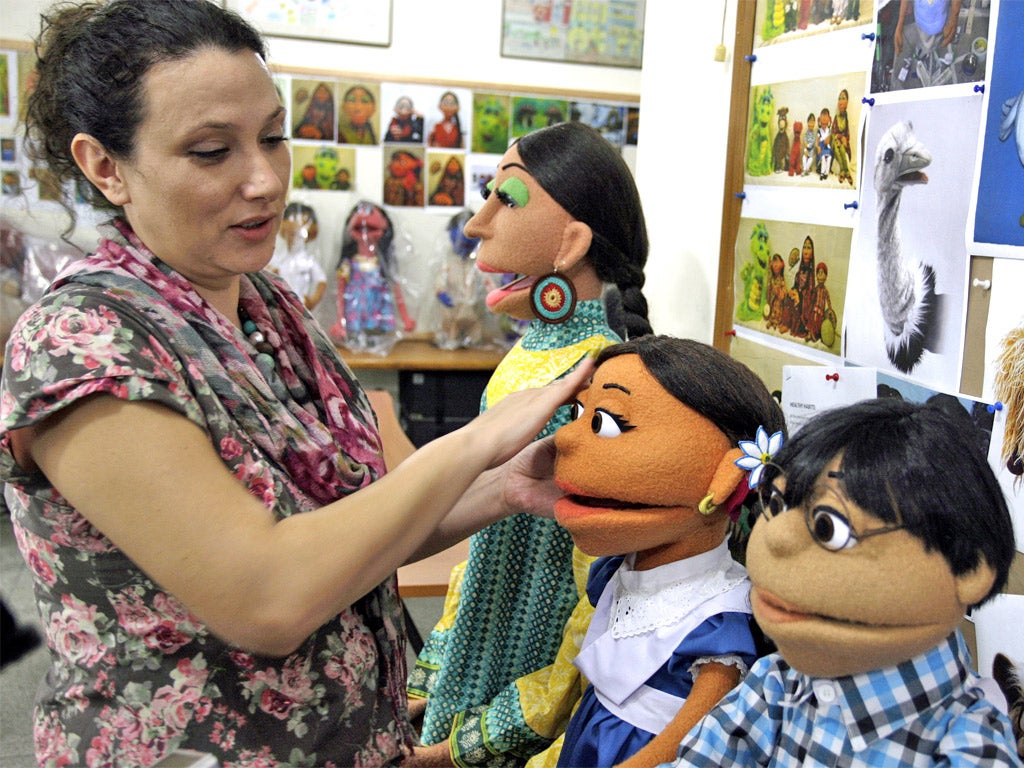US backers pull funding from Sim Sim Hamara - a Pakistani version of Sesame Street
Foreign aid agency ends theatre group deal amid allegations money is not being used appropriately

It was launched with much fanfare last year and made a star of a local schoolgirl, but the US announced yesterday that it was pulling the plug on funding for the Pakistani version of Sesame Street amid allegations the money has not been used appropriately.
America's foreign aid agency, USAID, said last year that it was giving money to a street theatre group in Lahore to produce a local franchise of the show to help promote education as well as spreading information on health awareness and even women's rights.
The £12m show Sim Sim Hamara (which translates as "Our Street") retained some of the programme's original characters, such as Elmo, but a young Pakistani schoolgirl called Rani was made the star.
The money was awarded to the Rafi Peer theatre group, a family-run workshop that has produced cultural events and puppet shows in Lahore for decades. But sources say staff at the company were recently informed that the US would stop funding the project in September.
A spokeswoman for the US consulate in Lahore confirmed yesterday that funding will end in four months, by which point around $10m will have been spent. The spokeswoman said the decision to end the funding had been made with the consent of the theatre company and that the project would continue, albeit without the support of the US government. She said she was unable to answer allegations the money had not been correctly used but added: "USAID constantly reviews projects to ensure they have maximum impact and to ensure efficiency."
Sesame Street was first aired in the US in 1969 and the US government has worked with its producers to develop shows in 20 other countries. The Sesame Workshop, a non-profit co-operative of writers, artists and educators, is involved in initiatives in up to 140 nations. They were keen to work in Pakistan, given that a third of children do not attend school.
"The key areas of the show will focus on language and literacy, maths and science, as well as respect for diversity," Faizan Peerzada, of the Rafi Peer Theatre Workshop, told The Independent last year, ahead of the first broadcast in December. "We have the original Sesame Street template but more than 90 per cent of the characters are local."
Last night, Mr Peerzada dismissed allegations in the Pakistani media that funds were being inappropriately used to pay personal debts as "fabricated". He said that according to a clause in the agreement between the workshop and USAID, the collaboration could be halted.
In a statement he said the workshop was now looking for alternative funding. "The company intends to continue to develop Sim Sim Hamara under its banner, and to add to its achievements for the continued sustainability of this project in the months and years to come," he said.
The original agreement called for the production of 78 episodes of the show over three years. A deliberate decision was taken to promote the cricket and music-loving Rani, who sports a blue and white school uniform and pigtails, to highlight the value of education for girls.
Join our commenting forum
Join thought-provoking conversations, follow other Independent readers and see their replies
Comments
Bookmark popover
Removed from bookmarks